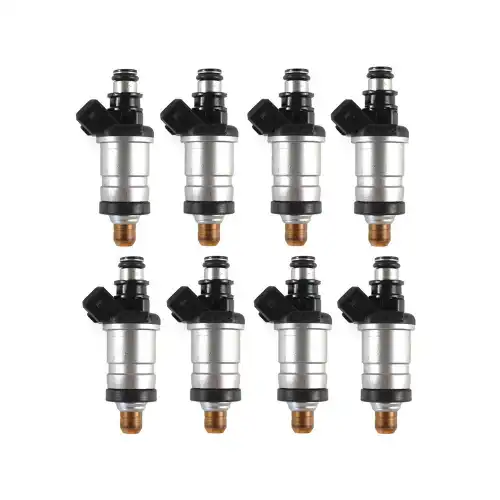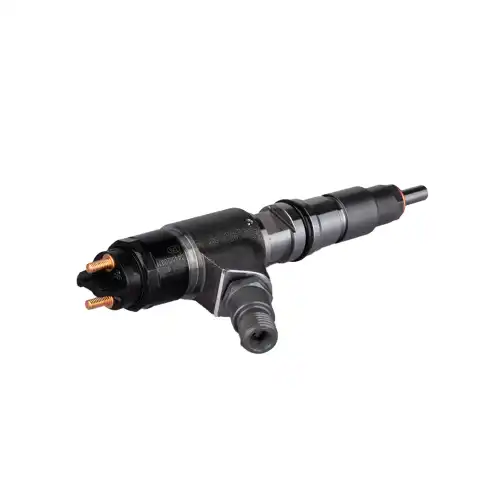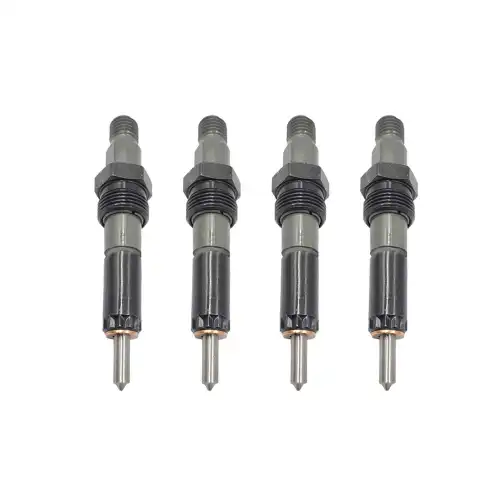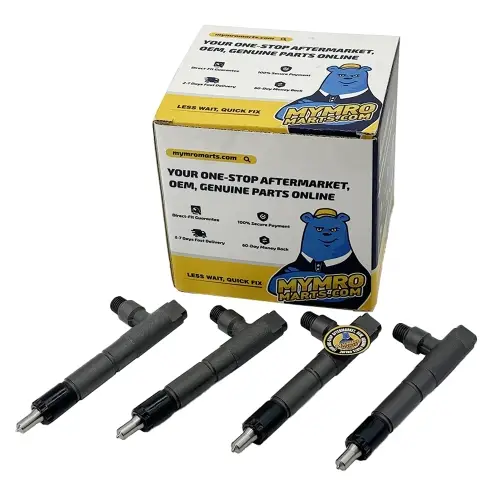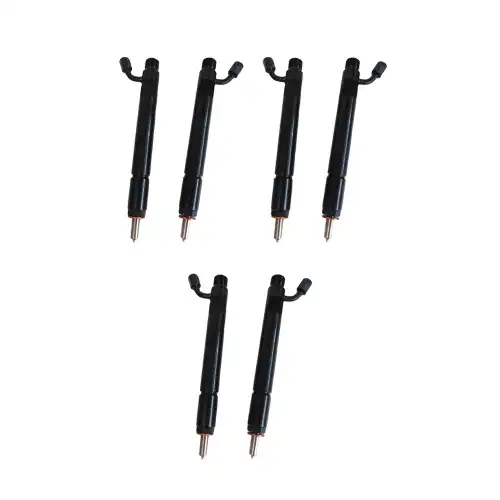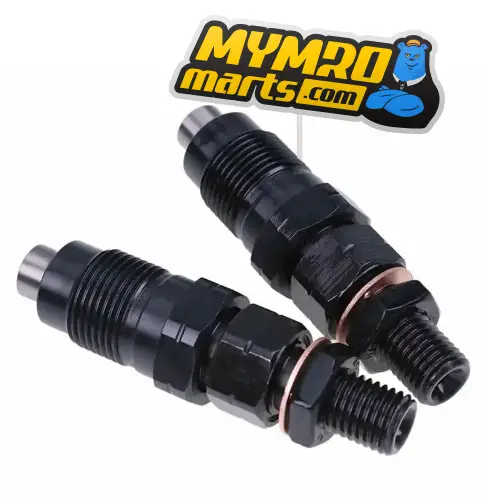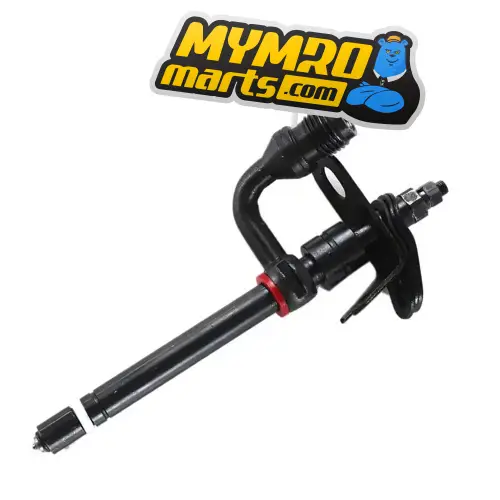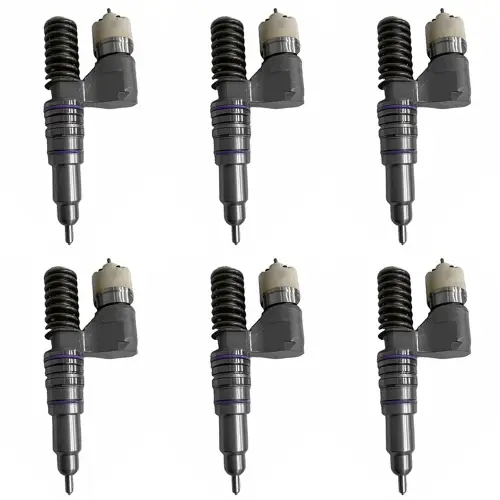Fuel Injector Guide: Replacement Price, Testing, and Cleaning Techniques
We offer a range of services related to fuel injectors, including replacement, pricing information, testing methods, and cleaning techniques. If you need help with fuel injectors, contact us today.
What’s the Price of Fuel Injector Replacement?
The fuel injector is an essential component of a car's engine that ensures efficient fuel delivery. However, over time, fuel injectors can become clogged, damaged, or worn out, leading to poor engine performance and fuel economy. When this happens, it may be necessary to replace one or more fuel injectors.
But what is the cost of fuel injector replacement? The answer to this question depends on several factors, including the make and model of your vehicle, the number of injectors that need replacing, and the labor costs of the mechanic performing the replacement.
On average, the fuel injector price can range from $50 to $300, with the cost of the parts typically ranging from $30 to $100. However, if multiple injectors need replacing, the cost can quickly add up. For instance, replacing all six injectors in a V6 engine can cost between $300 to $1,800.
Labor costs can also vary depending on the mechanic and the location. Generally, you can expect to pay between $50 and $150 per hour for labor. The total labor cost will depend on the complexity of the job, such as the accessibility of the injectors and the time it takes to complete the replacement.
When calculating the cost of fuel injector replacement, it's important to consider the long-term benefits. Replacing a faulty injector can improve your car's fuel economy, power, and performance, saving you money in the long run. Additionally, replacing a single injector can prevent damage to other components of the engine, which can be more costly to repair.
In conclusion, the cost of fuel injector replacement varies depending on several factors, including the make and model of your car, the number of injectors that need replacing, and the labor costs of the mechanic. Although it can be an expensive repair, it's important to consider the long-term benefits and potential savings in fuel costs and engine damage prevention. If you suspect that your fuel injectors need replacing, it's best to consult with a trusted mechanic for an accurate estimate.
How to Test the Fuel Injectors?
It’s important to know how to test fuel injectors. Fuel injectors are essential components of a car's engine, responsible for delivering fuel to the combustion chamber. Over time, these injectors can become clogged or damaged, leading to poor engine performance and fuel economy. In such cases, testing the fuel injectors is crucial to identify any underlying issues and ensure optimal engine performance. Here are some steps to follow for testing fuel injectors:
Step 1: Prepare the necessary tools
Before testing fuel injectors, you'll need the right tools, including a fuel pressure gauge, a noid light, a digital multimeter, and a fuel injector cleaning kit.
Step 2: Check the fuel pressure
First, check the fuel pressure to ensure that the fuel pump is delivering the right amount of fuel to the injectors. Use a fuel pressure gauge to test the pressure of the fuel system at the fuel rail. The fuel pressure should be within the manufacturer's specifications.
Step 3: Use a noid light to check injector pulse
Next, check the electrical pulse of the fuel injectors using a noid light. The noid light will help you verify that the injector is receiving an electrical signal and is firing correctly. To use the noid light, unplug the fuel injector electrical connector and plug in the noid light. Start the engine and observe the noid light to see if it's flashing.
Step 4: Test the resistance of the injector
To test the resistance of the fuel injector, use a digital multimeter. Set the multimeter to ohms and connect the leads to the injector terminals. The resistance should be within the manufacturer's specifications. If the resistance is too high or too low, the injector may need replacing.
Step 5: Perform a fuel injector cleaning
If the fuel injectors are clogged or dirty, cleaning them may help restore their functionality. Use a fuel injector cleaning kit to clean the injectors, following the instructions provided.
In conclusion, testing fuel injectors is crucial to ensure optimal engine performance and fuel economy. By following these steps and using the necessary tools, you can diagnose any issues with the fuel injectors and take appropriate actions to resolve them. If you're not comfortable performing these tests yourself, it's best to consult with a trusted mechanic for assistance.
How to Clean a Fuel Injector?
It’s important to know how to clean a fuel injector. Here are some steps to follow for cleaning fuel injectors:
Step 1: Prepare the necessary tools
Before cleaning fuel injectors, you'll need the right tools, including a fuel injector cleaning kit, fuel injector cleaner, a fuel pressure gauge, and a set of wrenches.
Step 2: Disconnect the fuel pump
To begin the cleaning process, first, you need to disconnect the fuel pump. This step will allow the fuel injector cleaner to circulate throughout the fuel system. You can do this by removing the fuse for the fuel pump or by disconnecting the electrical connector for the fuel pump.
Step 3: Connect the fuel injector cleaning kit
Next, connect the fuel injector cleaning kit to the fuel rail. Use a set of wrenches to disconnect the fuel line from the fuel rail and connect the cleaning kit to the fuel rail instead. Make sure to follow the manufacturer's instructions for the cleaning kit.
Step 4: Start the engine and run the cleaning solution
Start the engine and let it run until the cleaning solution has circulated throughout the fuel system. The duration of the cleaning process will depend on the manufacturer's instructions for the cleaning kit.
Step 5: Reconnect the fuel pump and test
After the cleaning process is complete, reconnect the fuel pump and start the engine. Use a fuel pressure gauge to check the fuel pressure and ensure that it's within the manufacturer's specifications.
In conclusion, cleaning fuel injectors is crucial to restore their functionality and ensure optimal engine performance. By following these steps and using the necessary tools, you can clean your fuel injectors and improve your car's fuel economy and power. If you're not comfortable performing these steps yourself, it's best to consult with a trusted mechanic for assistance.
 Track Your Order
Track Your Order




